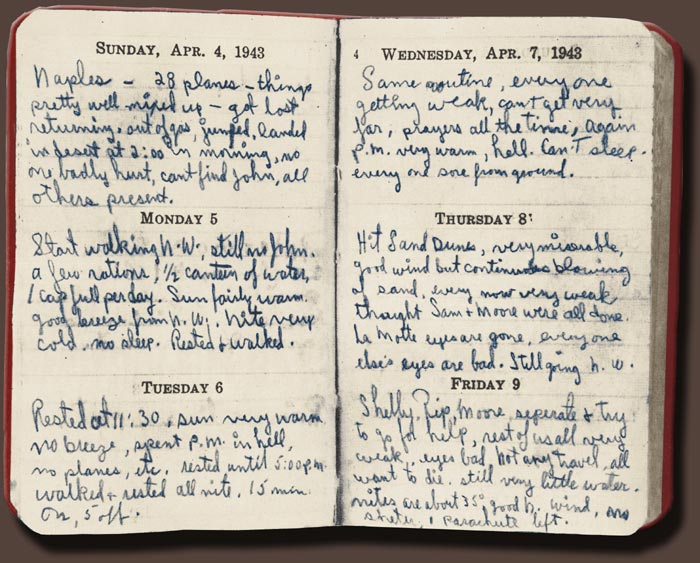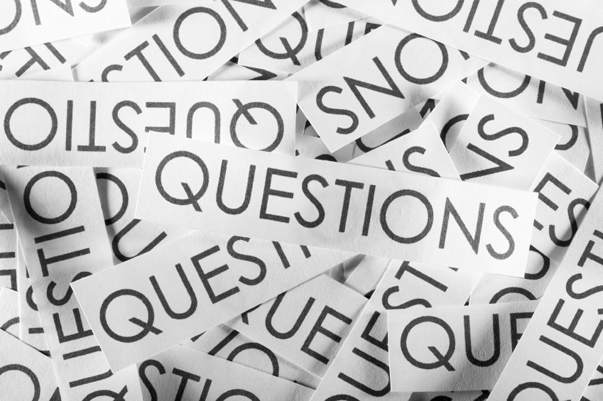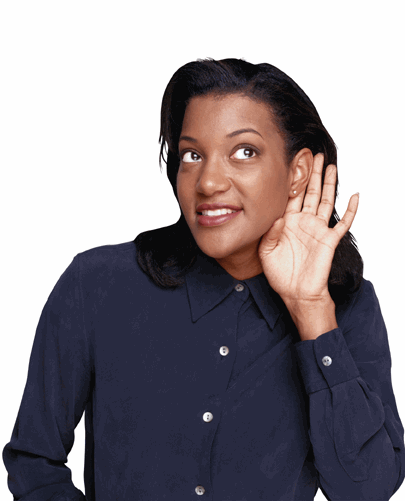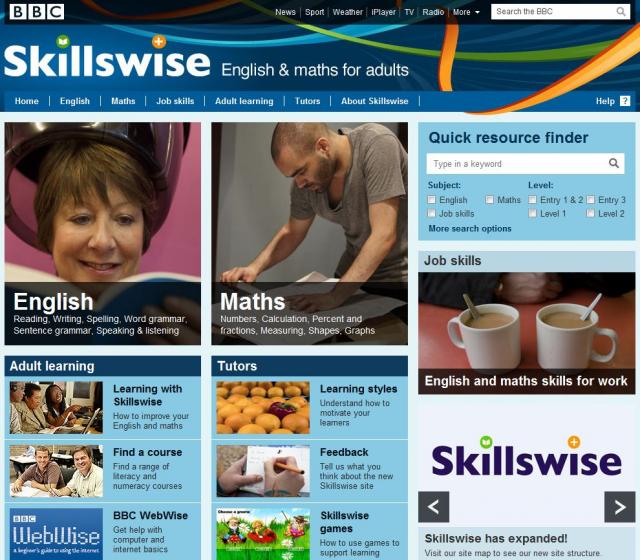There are lots of different exams that people can take to improve their reading and writing. Here is a link to some exams: http://www.trinitycollege.com/site/?id=3032
You should practise Entry 2 exams. This will give you good reading practise and will give you some good ideas to practise your writing. When you finish your writing, ask the teacher in the Study Centre to check it.
Thursday 13 November 2014
Thursday 6 November 2014
How can I improve my English outside class? (Part one)
There are lots of things you can do to improve your English outside class. Here are a few ideas:
1. Write a diary. This is good practice for writing and vocabulary. You can ask the teacher in the Study Centre to check it. Write something in your diary every day. You can write about what you did last night (in the past) or what you are going to do the next day (Tomorrow, I am going to...). You can write about something you saw, something in the news, a person you met... Anything! Two or three sentences is enough.
2. Follow a twitter account or subscribe to a website. This account looks useful for elementary students: https://twitter.com/EP_Learning You could subscribe to a BBC podcast to practise your listening skills. For example, http://www.bbc.co.uk/podcasts/series/6min_gram or http://www.bbc.co.uk/podcasts/series/elt_drama It is important that you listen to the podcast several times a week. These podcasts might be useful for Chinese students: http://www.bbc.co.uk/podcasts/series/aab and http://www.bbc.co.uk/podcasts/series/suk
3. Use songs to improve your vocabulary and pronunciation. http://lyricstraining.com/ is a good website where you can listen to the song and write in the missing words, but you can just listen to a song and find the lyrics on the internet.
1. Write a diary. This is good practice for writing and vocabulary. You can ask the teacher in the Study Centre to check it. Write something in your diary every day. You can write about what you did last night (in the past) or what you are going to do the next day (Tomorrow, I am going to...). You can write about something you saw, something in the news, a person you met... Anything! Two or three sentences is enough.
2. Follow a twitter account or subscribe to a website. This account looks useful for elementary students: https://twitter.com/EP_Learning You could subscribe to a BBC podcast to practise your listening skills. For example, http://www.bbc.co.uk/podcasts/series/6min_gram or http://www.bbc.co.uk/podcasts/series/elt_drama It is important that you listen to the podcast several times a week. These podcasts might be useful for Chinese students: http://www.bbc.co.uk/podcasts/series/aab and http://www.bbc.co.uk/podcasts/series/suk
3. Use songs to improve your vocabulary and pronunciation. http://lyricstraining.com/ is a good website where you can listen to the song and write in the missing words, but you can just listen to a song and find the lyrics on the internet.
IELTS Speaking Part Two
Here is a useful link to some questions you might see in the IELTS Speaking Exam. Remember, in part two, you need to talk about the questions on the card for one minute. The topics are general English (holidays, works, families etc). You need to talk about everything on the card. Look at the tenses used: do you need to talk about the past, the present, or the future:
http://www.usingenglish.com/files/pdf/101-ielts-speaking-part-two-topic-cards-that-tie-in-with-ielts-speaking-part-one.pdf
http://www.usingenglish.com/files/pdf/101-ielts-speaking-part-two-topic-cards-that-tie-in-with-ielts-speaking-part-one.pdf
Thursday 2 October 2014
Elementary object questions
We use question words when we want to find out information.
The most common question words are:
what for things why for reasons where for places when for times who for people
whose for possession (Whose phone is this? It is Ryan's phone.)
how often for frequency (sometimes, always, never) how far for distance
how long for time (an hour, 30 minutes) how old for age
how much for the number of uncountable nouns (How much fruit do you eat each day?)
how many for the number of countable nouns (How many vegetable do you eat every day?)
how much for the price of countable and uncountable nouns (How much is this laptop?)
how for solving a problem (How do you spell that? How do you say that in English? How do you make kabsa?)
Here is a game you can try. Click on the correct question word:
http://a4esl.org/q/f/z/zz87mca.htm
Here are some activities:
1. https://elt.oup.com/student/headway/elementary/a_grammar/unit04/hwy_elem_unit04_2?cc=gb&selLanguage=en
2. https://elt.oup.com/student/headway/elementary/a_grammar/unit04/hwy_elem_unit04_3?cc=gb&selLanguage=en
The most common question words are:
what for things why for reasons where for places when for times who for people
whose for possession (Whose phone is this? It is Ryan's phone.)
how often for frequency (sometimes, always, never) how far for distance
how long for time (an hour, 30 minutes) how old for age
how much for the number of uncountable nouns (How much fruit do you eat each day?)
how many for the number of countable nouns (How many vegetable do you eat every day?)
how much for the price of countable and uncountable nouns (How much is this laptop?)
how for solving a problem (How do you spell that? How do you say that in English? How do you make kabsa?)
Here is a game you can try. Click on the correct question word:
http://a4esl.org/q/f/z/zz87mca.htm
Here are some activities:
1. https://elt.oup.com/student/headway/elementary/a_grammar/unit04/hwy_elem_unit04_2?cc=gb&selLanguage=en
2. https://elt.oup.com/student/headway/elementary/a_grammar/unit04/hwy_elem_unit04_3?cc=gb&selLanguage=en
Thursday 25 September 2014
Elementary Listening
Here is a link to some exercises where you can practise listening:
http://www.talkenglish.com/Listening/ListenBasic.aspx
You need to click on the number (for example, #01), then click on Step 1. Then click on Step 2 to answer the questions. Finally, click on Step 3 and listen to the conversation again, but now you can read the text too.
Here is another link to some more listening practise: http://www.esl-lab.com/
http://www.talkenglish.com/Listening/ListenBasic.aspx
You need to click on the number (for example, #01), then click on Step 1. Then click on Step 2 to answer the questions. Finally, click on Step 3 and listen to the conversation again, but now you can read the text too.
Here is another link to some more listening practise: http://www.esl-lab.com/
Modals of obligation: Have to / Don't have to
We often want to talk about choices. For example,
1. "What do you want: a chicken sandwich or a cheese sandwich?" Here there is a choice. You can eat chicken or cheese. "You don't have to eat chicken. You can eat cheese."
2. "What do you want: a chicken sandwich or a chicken sandwich?" Here there is no choice. You can only eat chicken. "You have to eat chicken."
1. "What do you want: a chicken sandwich or a cheese sandwich?" Here there is a choice. You can eat chicken or cheese. "You don't have to eat chicken. You can eat cheese."
2. "What do you want: a chicken sandwich or a chicken sandwich?" Here there is no choice. You can only eat chicken. "You have to eat chicken."
Friday 12 September 2014
Reading websites
Here are some links to some websites where you can practise reading:
1. http://www.eslfast.com/
2. http://www.agendaweb.org/reading/comprehension_easy_interm1.html
3. http://www.esl-lounge.com/student/reading-elementary.php
1. http://www.eslfast.com/
2. http://www.agendaweb.org/reading/comprehension_easy_interm1.html
3. http://www.esl-lounge.com/student/reading-elementary.php
Friday 29 August 2014
Website: Elementary Games
Here is a link to a website with a lot of language games.
The games are mainly for children, but you can find the games fun and useful too. Try the games at Grade 2.
http://www.abcya.com/second_grade_computers.htm
These games are very useful for you:
1. http://www.abcya.com/dolch_sight_word_bingo.htm
2. http://www.abcya.com/dolch_sight_word_spelling.htm
3. http://www.abcya.com/nouns_and_verbs.htm
The games are mainly for children, but you can find the games fun and useful too. Try the games at Grade 2.
http://www.abcya.com/second_grade_computers.htm
These games are very useful for you:
1. http://www.abcya.com/dolch_sight_word_bingo.htm
2. http://www.abcya.com/dolch_sight_word_spelling.htm
3. http://www.abcya.com/nouns_and_verbs.htm
Tuesday 19 August 2014
Grammar: Present Simple v Present Continuous
A lot of students find the differences between the present simple and the present continuous difficult. Let's remember:
Thursday 31 July 2014
Activities on Quizlet
Quizlet is a free website where you can practise your English.
You can make cards with English words and translate them into your own language. There are many different types of cards you can make, and when you make the cards, this will help you learn. Here is a link to some cards I have made:
http://quizlet.com/TeacherRyan
The cards can help you practise vocabulary and grammar.
You can make cards with English words and translate them into your own language. There are many different types of cards you can make, and when you make the cards, this will help you learn. Here is a link to some cards I have made:
http://quizlet.com/TeacherRyan
The cards can help you practise vocabulary and grammar.
Thursday 24 July 2014
Vocabulary: Family
Here are some games to practise vocabulary about family and people:
1.https://elt.oup.com/student/result/engelem/b_vocabulary/unit02/2b_1?cc=us&selLanguage=en
2. https://elt.oup.com/student/result/engelem/b_vocabulary/unit02/2b_2?cc=us&selLanguage=en
3. https://elt.oup.com/student/result/engelem/b_vocabulary/unit02/2c_1?cc=us&selLanguage=en
4. https://elt.oup.com/student/result/engelem/b_vocabulary/unit02/2c_3?cc=us&selLanguage=en
1.https://elt.oup.com/student/result/engelem/b_vocabulary/unit02/2b_1?cc=us&selLanguage=en
2. https://elt.oup.com/student/result/engelem/b_vocabulary/unit02/2b_2?cc=us&selLanguage=en
3. https://elt.oup.com/student/result/engelem/b_vocabulary/unit02/2c_1?cc=us&selLanguage=en
4. https://elt.oup.com/student/result/engelem/b_vocabulary/unit02/2c_3?cc=us&selLanguage=en
Tuesday 15 July 2014
Monday 14 July 2014
Grammar Bubbles Game
Here is a link to the grammar game we played in class:http://gamestolearnenglish.com/grammar-bubbles/
Here is another game to practise longer sentences: http://gamestolearnenglish.com/falling-clouds/
Sunday 13 July 2014
Grammar: relative pronouns and relative clauses
Many students find relative clauses a difficult grammar point, but if you can use them correctly, you will significantly improve your writing. First, though, we need to look at relative pronouns.
There are lots of different pronouns in English and some you will already know: I, me, mine, you, yours, he, him, his etc. Relative pronouns are used to make questions and give extra information about people, places, times, things, and possessions.
There are lots of different pronouns in English and some you will already know: I, me, mine, you, yours, he, him, his etc. Relative pronouns are used to make questions and give extra information about people, places, times, things, and possessions.
Vocabulary: Food games
Here are some games you can play to learn vocabulary for food. Some of these are good for pronunciation too. Which games do you like?
1. https://elt.oup.com/student/i-spy/games/food?cc=gb&selLanguage=en
2. http://www.angles365.com/classroom/fitxers/1r2n/vegetables01.swf
3. http://www.angles365.com/classroom/fitxers/1r2n/food/fruitmemory.swf
4. http://www.angles365.com/classroom/fitxers/3r/food/vegetables2.swf
5. http://gamestolearnenglish.com/likes/
6. http://gamestolearnenglish.com/food/
1. https://elt.oup.com/student/i-spy/games/food?cc=gb&selLanguage=en
2. http://www.angles365.com/classroom/fitxers/1r2n/vegetables01.swf
3. http://www.angles365.com/classroom/fitxers/1r2n/food/fruitmemory.swf
4. http://www.angles365.com/classroom/fitxers/3r/food/vegetables2.swf
5. http://gamestolearnenglish.com/likes/
6. http://gamestolearnenglish.com/food/
Tuesday 17 June 2014
Vocabulary: Holidays
There are lots of exercises about holidays here: http://www.esolcourses.com/topics/holidays-and-travel.html You can practise vocabulary, grammar, reading and listening.
Here is a short reading test: http://www.esolcourses.com/uk-english/elementary-course/travel-and-holidays/travel-and-holidays-reading.html
There are many more exercises on their homepage:
1. Elementary http://www.esolcourses.com/content/topicsmenu/elementary.html
2. Lower Intermediate http://www.esolcourses.com/content/topicsmenu/pre-intermediate.html
Here is a short reading test: http://www.esolcourses.com/uk-english/elementary-course/travel-and-holidays/travel-and-holidays-reading.html
There are many more exercises on their homepage:
1. Elementary http://www.esolcourses.com/content/topicsmenu/elementary.html
2. Lower Intermediate http://www.esolcourses.com/content/topicsmenu/pre-intermediate.html
Monday 16 June 2014
Listening tests: Lower Intermediate and above
There are lots of listening exercises on this website: http://www.esl-lab.com/
The actors have American accents and may use some American vocabulary. Although some listenings are labelled "easy", I think they are suitable for Lower Intermediate and above. They are quite short.
If you like the website, do tell Randall, the website owner.
 |
| http://www.girlytwitter.com/source/Young_puppy_listening_to_music_on_head_phones.jpg |
If you like the website, do tell Randall, the website owner.
Grammar: Present simple or Present continuous
We have two present tenses you need to practise: the present simple and the present continuous. We use them to talk about different things and we make them in different ways. Look at the picture:
Thursday 29 May 2014
Grammar: Be
The verb be is very important in English. Some languages don't have the verb be, but in English, we use it a lot. It's important that you learn this verb.
Wednesday 21 May 2014
Punctuation: full stops and capital letters
At the beginning of every sentence, you need to use a CAPITAL LETTER. We also use capital letters for names of:
people countries cities languages nationalities companies months days roads and streets attractions (eg art galleries, museums, shopping centres)
people countries cities languages nationalities companies months days roads and streets attractions (eg art galleries, museums, shopping centres)
Elementary Reading Website Links
Here are the links to the websites we talked about in class today.
First, here is a link to the Cambridge online dictionary:
http://dictionary.cambridge.org/dictionary/essential-british-english/
English Test Store has 35 reading tests. Do one every day:
http://englishteststore.net/index.php?option=com_content&view=article&id=33&Itemid=31
News In Levels has easy to read news stories every week. Listen to the recording and try and write the first few sentences. Check your spelling and sentences with the reading text. Do one every week:
http://www.newsinlevels.com/
There are lots of graded readers in the Study Centre. Read one every week and complete the activities:
http://www.amazon.co.uk/s/ref=nb_sb_noss_1?url=search-alias%3Daps&field-keywords=graded%20readers%20level%202&sprefix=graded+readers+level+2%2Caps&rh=i%3Aaps%2Ck%3Agraded%20readers%20level%202
First, here is a link to the Cambridge online dictionary:
http://dictionary.cambridge.org/dictionary/essential-british-english/
English Test Store has 35 reading tests. Do one every day:
http://englishteststore.net/index.php?option=com_content&view=article&id=33&Itemid=31
News In Levels has easy to read news stories every week. Listen to the recording and try and write the first few sentences. Check your spelling and sentences with the reading text. Do one every week:
http://www.newsinlevels.com/
There are lots of graded readers in the Study Centre. Read one every week and complete the activities:
http://www.amazon.co.uk/s/ref=nb_sb_noss_1?url=search-alias%3Daps&field-keywords=graded%20readers%20level%202&sprefix=graded+readers+level+2%2Caps&rh=i%3Aaps%2Ck%3Agraded%20readers%20level%202
Wednesday 14 May 2014
Thursday 1 May 2014
Grammar: How much/how many?
Grammar: a/an/some/any
Labels:
An,
Any,
Blue,
Countable Nouns,
Elementary,
Some,
Uncountable Nouns
Wednesday 30 April 2014
Spelling: Plurals
Do you need to practise spelling plural nouns? This game can help you.
Remember, for most words + s
If the word ends with vowel + y + s
If the word ends with consonant +y + ies
If the word ends with sh, ch, s, z, x or o + es
This is true for 3rd person verbs too: Carlos watches TV. Martha goes to the cinema. Saddam studies every day.
Here is the link for the game: http://www.bbc.co.uk/skillswise/game/en16plur-game-plural-fishing
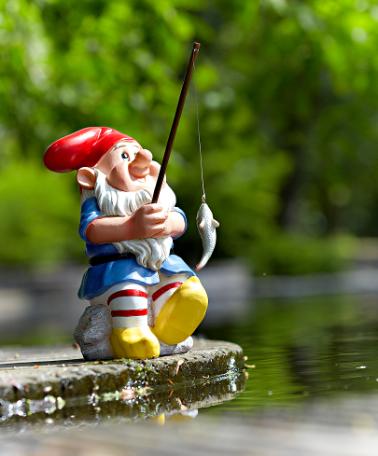 |
| (image: http://fallingrock1.files.wordpress.com/2012/03/gnome-fishing.jpg) |
If the word ends with vowel + y + s
If the word ends with consonant +y + ies
If the word ends with sh, ch, s, z, x or o + es
This is true for 3rd person verbs too: Carlos watches TV. Martha goes to the cinema. Saddam studies every day.
Here is the link for the game: http://www.bbc.co.uk/skillswise/game/en16plur-game-plural-fishing
Thursday 24 April 2014
Grammar: Possessives
We often want to talk about things people own or possess. We can do this by using a possessive adjective, or by using the person's name or job +'s (apostrophe s) .
Wednesday 23 April 2014
Grammar: a/an/the
We often need to use a, an or the when we talk about nouns.
We use a with consonant sounds. For example, computer, pen, teacher, banana
We use an with vowel sounds. For example, orange, apple, umbrella.
 | |
| (image: http://www.kienthucduhoc.com) |
We use an with vowel sounds. For example, orange, apple, umbrella.
Reading: People and places
In the class, we read about Isabel from Peru. She lives in Arequipa:
 |
| (image: http://www.ucsp.edu.pe) |
Tuesday 22 April 2014
Vocabulary: Nationalities
Here are some links to practise vocabulary for nationalities:
1. https://elt.oup.com/student/englishfile/elementary/b_vocabulary/bank02/?cc=gb&selLanguage=en
2. https://elt.oup.com/student/result/engelem/b_vocabulary/unit03/?cc=gb&selLanguage=en
 | |||
| (image: http://englishinaction1-stlisieux.blogspot.co.uk/2013/01/unit-3-countries-nationalities-languages.html) |
2. https://elt.oup.com/student/result/engelem/b_vocabulary/unit03/?cc=gb&selLanguage=en
Saturday 19 April 2014
Game: Any/Some/Countable Nouns
Here is a little game to practise any/some/a/an: https://elt.oup.com/student/result/engelem/c_games/game_03?cc=gb&selLanguage=en
Have or Has?
Have is an irregular verb in the present: I have, you have, he has. we have, they have. A lot of students find this difficult to remember.
The negative of he has is ..... ?
The negative of he has is ..... ?
Present simple tense
We use the present simple tense to talk about facts which are always true, and to talk about daily routines and habits. For example;
I get up in the morning at 7 o'clock, and I go to work at 8.15. We have a break around 10 o'clock and the lesson finishes at 11.30. I teach an elective class until 1 o'clock. In the afternoon, I plan the next lesson and mark homework, but on Wednesdays, I go to university.
I get up in the morning at 7 o'clock, and I go to work at 8.15. We have a break around 10 o'clock and the lesson finishes at 11.30. I teach an elective class until 1 o'clock. In the afternoon, I plan the next lesson and mark homework, but on Wednesdays, I go to university.
Vocabulary: Food
Here is a link to some games and activities to practise food and drink vocabulary: https://elt.oup.com/student/result/engelem/b_vocabulary/unit06/?cc=gb&selLanguage=en
Can you name all the vegetables in the picture?
Here is another link to more practise: https://elt.oup.com/student/englishfile/elementary/b_vocabulary/bank14/?cc=gb&selLanguage=en
Can you name all the vegetables in the picture?
Here is another link to more practise: https://elt.oup.com/student/englishfile/elementary/b_vocabulary/bank14/?cc=gb&selLanguage=en
Tuesday 15 April 2014
Grammar: Past tense practice
When we want to talk about actions which started and finished in the past, we use a past simple tense. Verbs can be regular or irregular.
Thursday 3 April 2014
People: I/you/he/she/it/we/they (Personal pronouns)
When we use verbs, we need to say who is doing the action. Sometimes it is one person (singular), sometimes it is more than one person (plural).
Verbs
We use verbs to talk about actions. For example, fly, arrive, come, study, read, write
We use verbs to talk about different times and when we do something. For example, in the past (yesterday), in the present (today) or in the future (tomorrow). These different times are called tenses, so we have a past tense, a present tense and a future tense.
Sometimes we also want to say how long we do something: every day, for a short time, at the moment. For this we need to use different types of tense. For example, we use a present simple tense to talk about things we do every day, and we use a present continuous tense to talk about things we are doing at the moment.
The most common English verbs are:
be have do say get make know go take see come think look want give use find tell work ask seem feel try leave call
Saying hello and goodbye
There are lots of different ways to say hello and goodbye in English. You need to think about the situation: is it formal (like in an office, or when you meet someone for the first time "Good morning. My name's Ryan.") or is it informal (like when you meet your friends "Hi Ryan! How's it going?")?
Listen to the conversation here: https://elt.oup.com/student/headway/elementary/f_everydayenglish/hwy_elem_dialogue01?cc=gb&selLanguage=en
For practise, change which parts you want to see. Click on Part A. Now you can only see Part B. Listen again. Can you write Part A?
Now click the parts you want to hear. Click on Part B. Listen again. Can you speak the missing words from Part B?
There is some useful vocabulary and a short test here: http://www.bbc.co.uk/worldservice/learningenglish/radio/specials/1142_greeting/page2.shtml Listen to the recording and practise the vocabulary the next time you talk to people. Do you need formal or informal language?
Listen to the conversation here: https://elt.oup.com/student/headway/elementary/f_everydayenglish/hwy_elem_dialogue01?cc=gb&selLanguage=en
For practise, change which parts you want to see. Click on Part A. Now you can only see Part B. Listen again. Can you write Part A?
Now click the parts you want to hear. Click on Part B. Listen again. Can you speak the missing words from Part B?
There is some useful vocabulary and a short test here: http://www.bbc.co.uk/worldservice/learningenglish/radio/specials/1142_greeting/page2.shtml Listen to the recording and practise the vocabulary the next time you talk to people. Do you need formal or informal language?
Wednesday 26 February 2014
Practising Punctuation: BBC Skillswise
Here is a link to the punctuation practise we did this morning: http://www.bbc.co.uk/skillswise/topic/punctuation
There are many more activities on the BBC Skillswise website. Explore the website and let me know what you think. Which activities do you find the most useful and enjoyable? Is there anything you want to practise more in class? Leave a comment and let me know.
There are many more activities on the BBC Skillswise website. Explore the website and let me know what you think. Which activities do you find the most useful and enjoyable? Is there anything you want to practise more in class? Leave a comment and let me know.
Tuesday 28 January 2014
Vocabulary Games: Describing people
There are lots of games on different websites to help you learn vocabulary. Here are some online games you can try to help you learn some adjectives you can use to describe people. The website is called www.manythings.org
Grammar: -ed/-ing adjectives
Do you feel confused when you see different adjectives? Do you think adjectives are confusing? You are not alone.
There are many different suffixes (final letters) for adjectives. Among the most common are: -ive (positive), -ible (possible), -able (comfortable), -ish (babyish), and -ed/-ing (confused/confusing). Let's look at -ed/-ing adjectives.
There are many different suffixes (final letters) for adjectives. Among the most common are: -ive (positive), -ible (possible), -able (comfortable), -ish (babyish), and -ed/-ing (confused/confusing). Let's look at -ed/-ing adjectives.
Monday 13 January 2014
State verbs
Q: Which famous company uses incorrect grammar in their advertisements?
In English, we can use verbs to talk about actions or feelings and emotions. Verbs that describe actions, for example, run, write, sing, are called action or dynamic verbs. We can use them in both simple and continuous tenses: Sorry, I can't stop! I am running a race!/ I run two miles every day.
In English, we can use verbs to talk about actions or feelings and emotions. Verbs that describe actions, for example, run, write, sing, are called action or dynamic verbs. We can use them in both simple and continuous tenses: Sorry, I can't stop! I am running a race!/ I run two miles every day.
Subscribe to:
Posts (Atom)

